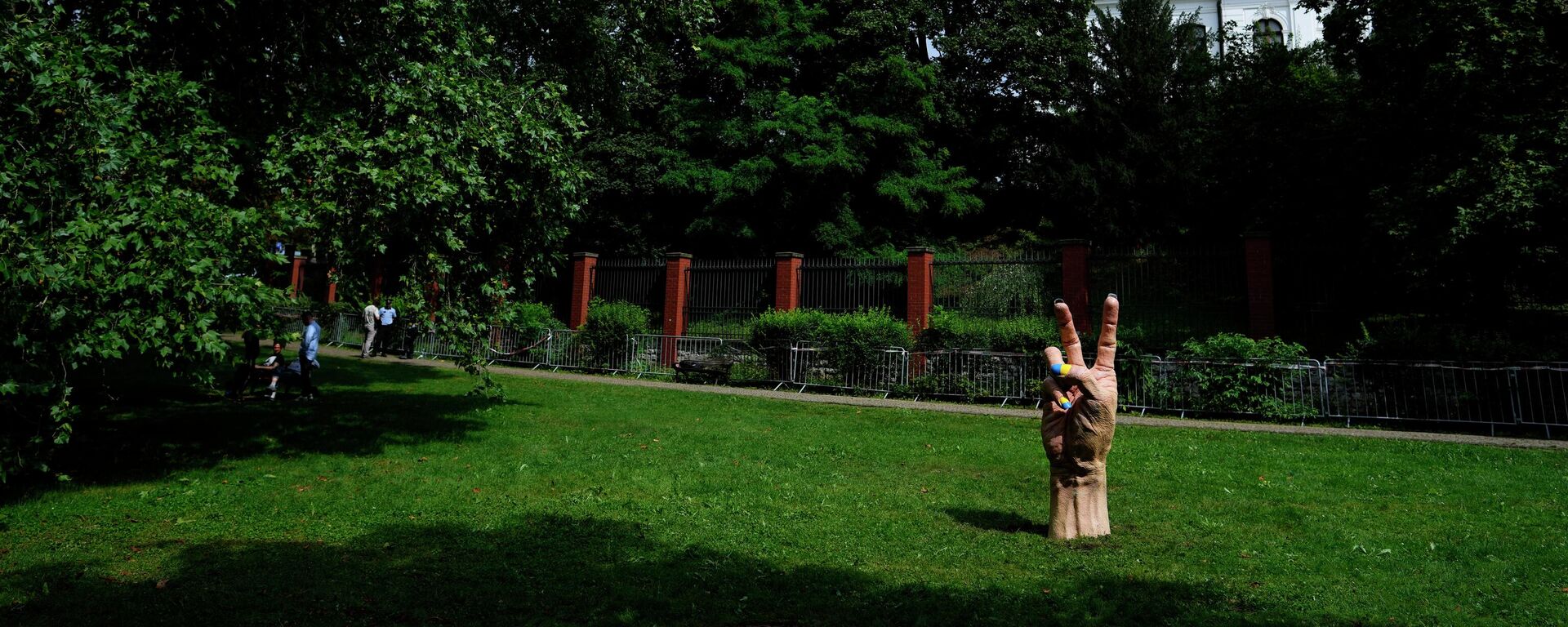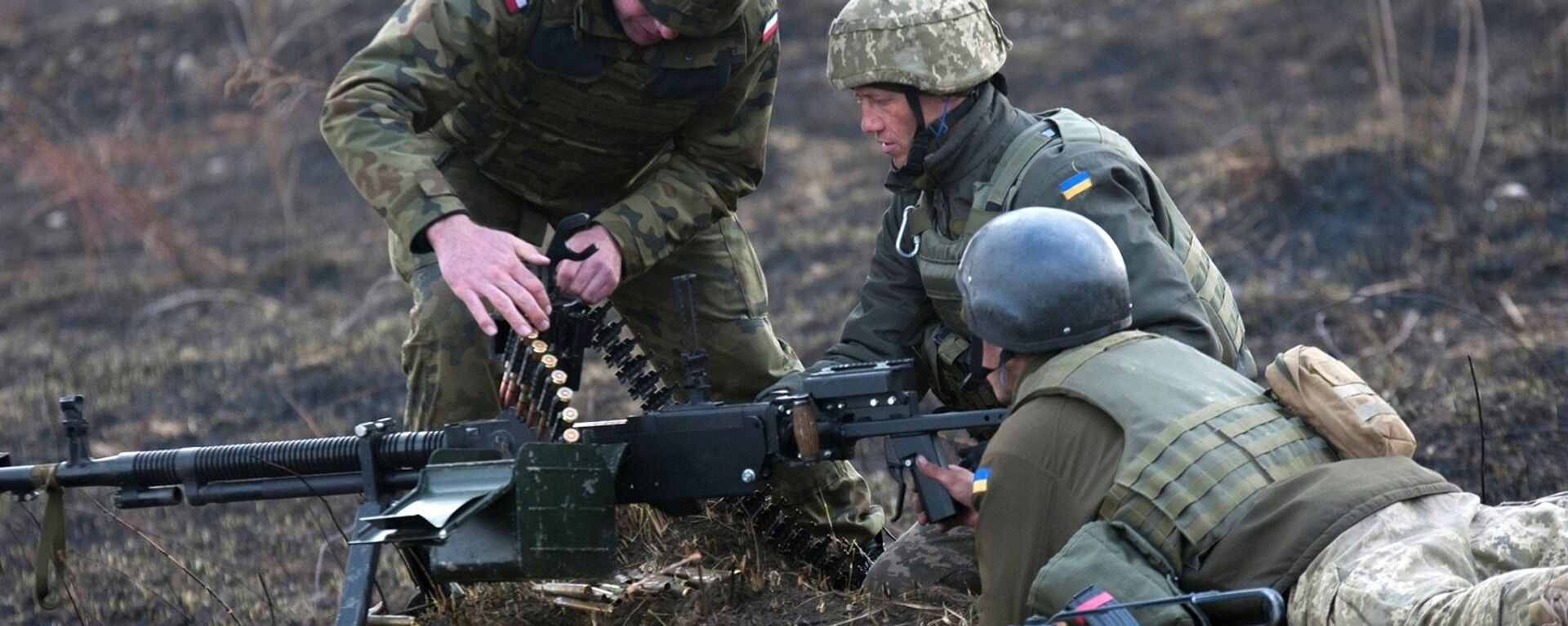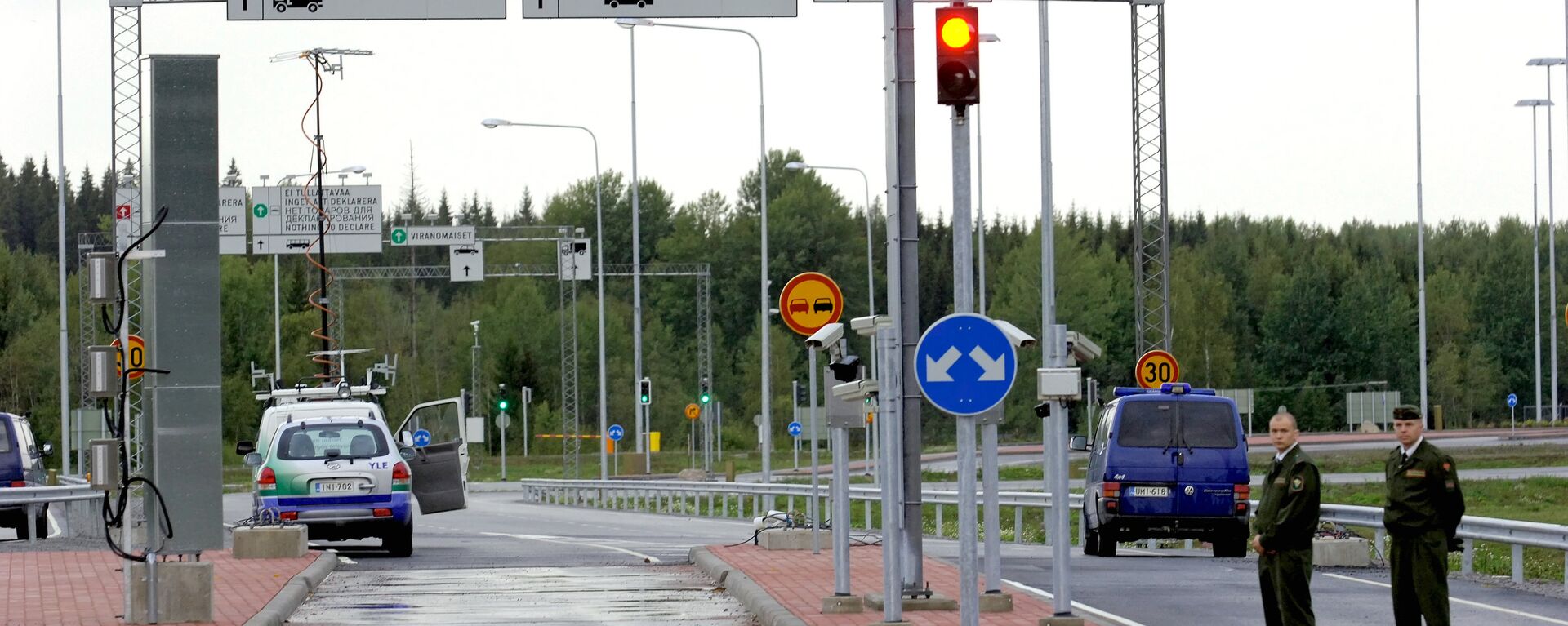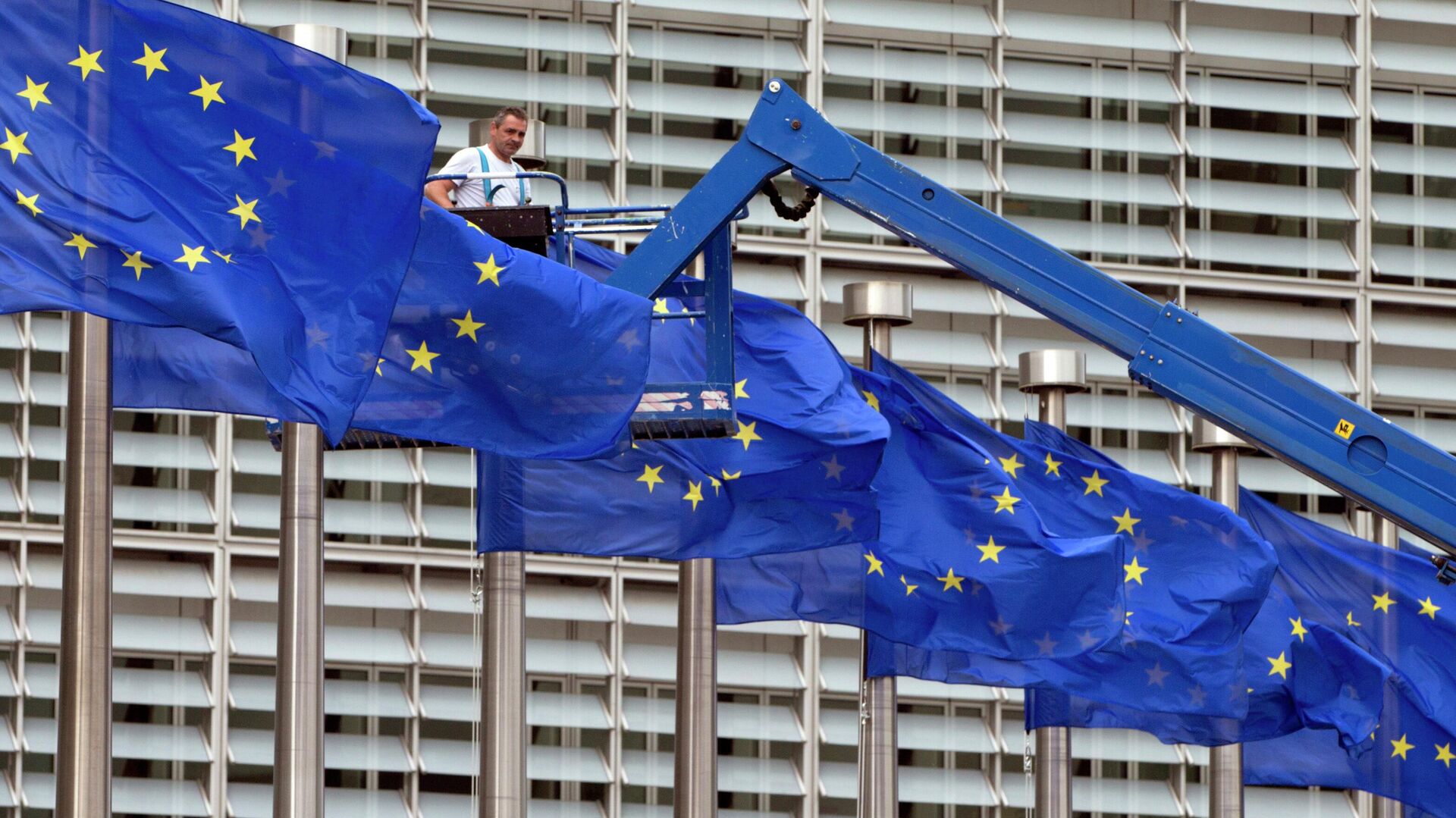https://sputnikglobe.com/20220830/could-sanctions-fatigue--split-on-russian-visa-ban-fuel-fissures-within-eu--1100168999.html
Could Sanctions 'Fatigue' & Split on Russian Visa Ban Fuel Fissures Within EU?
Could Sanctions 'Fatigue' & Split on Russian Visa Ban Fuel Fissures Within EU?
Sputnik International
As Russia continues with its special military operation in Ukraine, which resulted in “counterproductive” sanctions against Moscow conceived by the so-called... 30.08.2022, Sputnik International
2022-08-30T11:54+0000
2022-08-30T11:54+0000
2022-08-30T15:28+0000
european union (eu)
russia
ukraine crisis
sanctions
visas
cost of living
europe
sputnik explains
https://cdn1.img.sputnikglobe.com/img/07e6/06/03/1095961953_0:0:3133:1762_1920x0_80_0_0_620632a3e3f7ba87b9eb41fda1482ef7.jpg
EU hawks advocating a hard line, sanctions-based approach to Russia over its ongoing special military operation in Ukraine are increasingly facing a lukewarm response from the continent’s governments, Politico reported.Countries are more hard-pressed to tackle the cost of living crisis driven by rising inflation and energy costs than pleas to keep targeting Russia with new restrictions. The West portrays Russia's operation to protect the inhabitants of Donbass against attacks by the Kiev regime as an “invasion.”Furthermore, after successive waves of sanctions, European officials have largely run out of ideas regarding what measures might harm the Kremlin’s interests without also hurting their own.As European defense and foreign ministers gather for informal talks in Prague this week, the latest proposal from predominantly Eastern European hawks has been to ban Russian tourists from entering the EU.The EU’s visa facilitation agreement with Moscow, reached in 2007, has eased Russian EU visa applications for years.However, EU officials reportedly acknowledge there is little appetite for this new restrictive initiative as they struggle to minimize the fallout impact for their economies from the sanctions.At the 27-minister gathering in the Czech capital, it is anticipated that a political deal may be reached to slow the visa issuing process for Russians, while also making it more costly, the outlet reported.Germany and France had earlier circulated a memo to EU member states arguing that a visa ban would only alienate the Russian people, according to Politico.Those advocating a far-reaching visa ban, like Estonian Prime Minister Kaja Kallas, have insisted that tourist visa restrictions are “something that hurts Russia” but “doesn't hurt the European side.”Kallas argued in a recent interview that such a ban, as it impacts the "elite," is “something that Russia is afraid of.” The bloc’s debate over new restrictions against Russia may indicate a looming shift in dynamics among EU capitals, the report suggested.Weighing in on the sanctions already in place against Moscow, one senior European diplomat was cited as saying that, “Most ‘low fruits’ have been adopted.”Two EU diplomats claimed that the coalition of ministers from countries supporting a broad tourist visa ban on Russia may attempt to push through their plan.Individual nations have already started restricting Russians' entry, with the Baltic countries, Poland, and the Czech Republic stopping granting visas to Russian citizens in late July.Danish Foreign Minister Jeppe Kofod is one of those who recently called on the EU to take the “toughest line possible” on visas.In response, Germany and France have said they “wish to maintain a legal framework that allows in particular students, artists, scholars, professionals - independent of whether they are at risk of prosecution on political grounds — to travel to the EU.”Finnish Foreign Minister Pekka Haavisto, opting for a significant reduction of visas rather than an outright ban, suggested EU officials will have to return to the discussion in later months. Last week, Czech Foreign Minister Jan Lipavsky acknowledged there are no major new sanctions in the pipeline, saying that the EU had reached a “phase when we need to be patient.”This does not mean European officials are not scrambling to come up with new initiatives to prop up the Kiev regime. Thus, defense ministers in Prague will discuss a proposal from the EU’s foreign policy chief, Josep Borrell, to form an EU training mission for Ukrainian troops.But despite NATO countries having funneled billions of dollars in weaponry to Kiev, there are clear signs of "war fatigue" setting in, and the momentum for sanctions is slowing, the report added.European governments are less and less likely to make grand gestures towards Ukraine and its president, Volodymyr Zelensky, who has been clamoring for a blanket travel ban on Russian citizens, the report concluded.Russia has pointed out time and again that Western arms shipments to Kiev only prolong the conflict and delay peace negotiations. Moscow has also expressed concern about the fate of the weapons once they are in Ukraine, pointing to the dangers of them ending up on the international illegal arms black market. As for sanctions, Russia’s President Vladimir Putin has called them a “double-edged sword,” as they have fueled skyrocketing energy costs and record-level inflation.
https://sputnikglobe.com/20220829/eu-foreign-ministers-to-hold-informal-2-day-meeting-in-prague-1100139557.html
https://sputnikglobe.com/20220830/eu-hatched-ukrainian-army-training-mission-idea-long-before-escalation-of-conflict-borrell-admits-1100168402.html
https://sputnikglobe.com/20220815/morally-wrong-criticism-erupts-as-finland-considers-restricting-tourist-visas-for-russians-1099595873.html
russia
Sputnik International
feedback@sputniknews.com
+74956456601
MIA „Rossiya Segodnya“
2022
News
en_EN
Sputnik International
feedback@sputniknews.com
+74956456601
MIA „Rossiya Segodnya“
Sputnik International
feedback@sputniknews.com
+74956456601
MIA „Rossiya Segodnya“
european union (eu), russia, ukraine crisis, sanctions, visas, cost of living, europe, sputnik explains
european union (eu), russia, ukraine crisis, sanctions, visas, cost of living, europe, sputnik explains
Could Sanctions 'Fatigue' & Split on Russian Visa Ban Fuel Fissures Within EU?
11:54 GMT 30.08.2022 (Updated: 15:28 GMT 30.08.2022) As Russia continues with its special military operation in Ukraine, which resulted in “counterproductive” sanctions against Moscow conceived by the so-called collective West, fissures have been increasingly forming between leaders of EU countries over how far to proceed with the restrictive agenda.
EU hawks advocating a hard line,
sanctions-based approach to Russia over its ongoing special military operation in Ukraine are increasingly facing a lukewarm response from the continent’s governments, Politico reported.
Countries are more hard-pressed to tackle the
cost of living crisis driven by rising inflation and energy costs than pleas to keep targeting Russia with new restrictions. The West portrays Russia's operation to protect the inhabitants of Donbass against attacks by the Kiev regime as an “invasion.”
Furthermore, after successive waves of sanctions, European officials have largely run out of ideas regarding what measures might harm the Kremlin’s interests without also hurting their own.
As European defense and foreign ministers gather for informal talks in Prague this week, the latest proposal from predominantly Eastern European hawks has been
to ban Russian tourists from entering the EU.
The EU’s visa facilitation agreement with Moscow, reached in 2007, has eased Russian EU visa applications for years.
However, EU officials reportedly acknowledge there is
little appetite for this new restrictive initiative as they struggle to minimize the fallout impact for their economies from the sanctions.
At the 27-minister
gathering in the Czech capital, it is anticipated that a political deal may be reached to slow the visa issuing process for Russians, while also making it more costly, the outlet reported.

29 August 2022, 21:15 GMT
Germany and France had earlier circulated a memo to EU member states arguing that a visa ban would only alienate the Russian people, according to Politico.
“While limiting contacts with regime representatives and authorities to areas of vital EU interest, we need to strategically fight for the ‘hearts and minds’ of the Russian population — at least the segments not yet completely estranged from ‘the West,’” Paris and Berlin are cited as writing.
Those advocating a far-reaching visa ban, like Estonian Prime Minister Kaja Kallas, have insisted that tourist visa restrictions are “something that hurts Russia” but “doesn't hurt the European side.”
Kallas argued in a recent interview that such a ban, as it impacts the "elite," is “something that Russia is afraid of.” The bloc’s debate over new restrictions against Russia may indicate a looming shift in dynamics among EU capitals, the report suggested.

30 August 2022, 11:00 GMT
Weighing in on the sanctions already in place against Moscow, one senior European diplomat was cited as saying that, “Most ‘low fruits’ have been adopted.”
The source added that, “almost all options have been used and now it’s really difficult to find effective measures that don’t hurt us more.”
Two EU diplomats claimed that the coalition of ministers from countries supporting a broad tourist visa ban on Russia may attempt to push through their plan.
Individual nations have already started restricting Russians' entry, with the Baltic countries, Poland, and the Czech Republic stopping granting visas to Russian citizens in late July.
Danish Foreign Minister Jeppe Kofod is one of those who recently called on the EU to take the “toughest line possible” on visas.
In response, Germany and France have said they “wish to maintain a legal framework that allows in particular students, artists, scholars, professionals - independent of whether they are at risk of prosecution on political grounds — to travel to the EU.”
Finnish Foreign Minister Pekka Haavisto, opting for a significant reduction of visas rather than an outright ban, suggested EU officials will have to return to the discussion in later months. Last week, Czech Foreign Minister Jan Lipavsky acknowledged there are no major new sanctions in the pipeline, saying that the EU had reached a “phase when we need to be patient.”
This does not mean European officials are not scrambling to come up with new initiatives to prop up the Kiev regime. Thus, defense ministers in Prague will discuss a proposal from the EU’s foreign policy chief, Josep Borrell, to form an
EU training mission for Ukrainian troops.
“It will be a discussion, if the European Union will be able to finance training activities in the future,” Danish Defense Minister Morten Bodskov, whose country is co-leading an initiative with the UK, told the publication.
But despite NATO countries having funneled billions of dollars in weaponry to Kiev, there are clear signs of "war fatigue" setting in, and the momentum for sanctions is slowing, the report added.
European governments are less and less likely to make grand gestures towards Ukraine and its president, Volodymyr Zelensky, who has been clamoring for a blanket travel ban on Russian citizens, the report concluded.

15 August 2022, 05:22 GMT
Russia has pointed out time and again that Western arms shipments to Kiev only prolong the conflict and delay peace negotiations. Moscow has also expressed concern about the fate of the weapons once they are in Ukraine, pointing to the dangers of them ending up on the international illegal arms black market. As for
sanctions, Russia’s President Vladimir Putin has called them a “double-edged sword,” as they have fueled skyrocketing
energy costs and record-level inflation.




